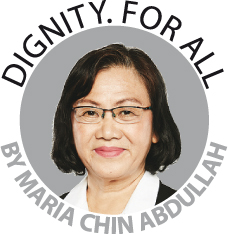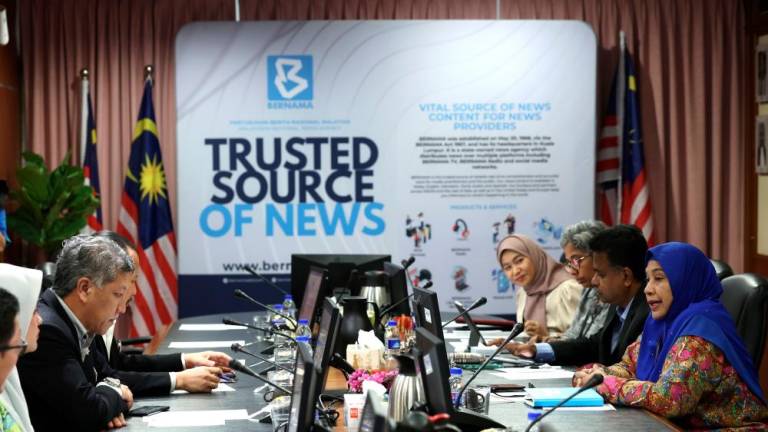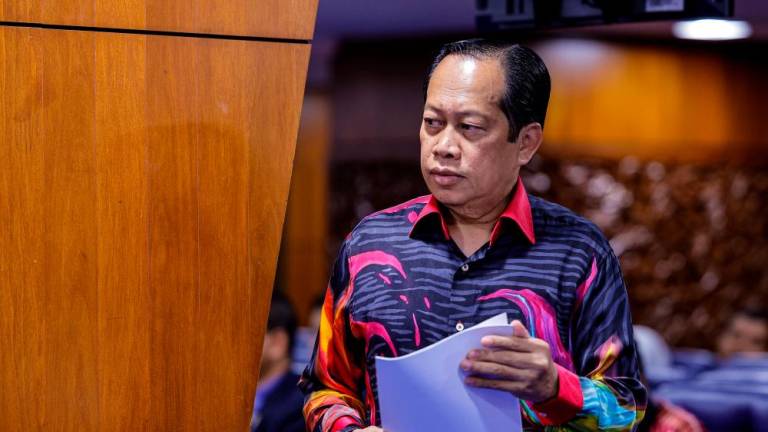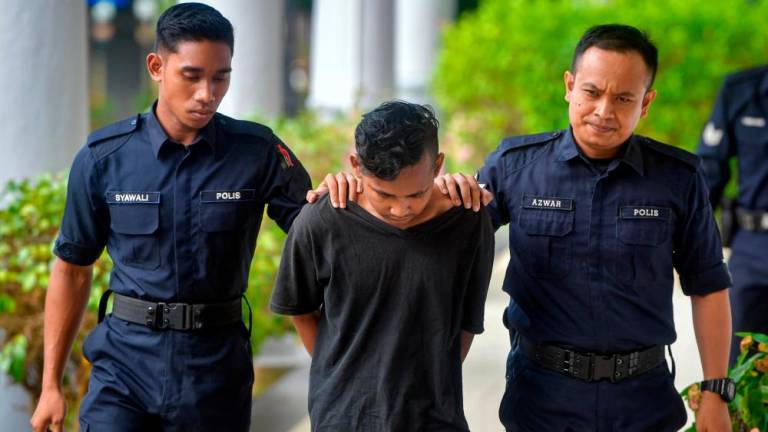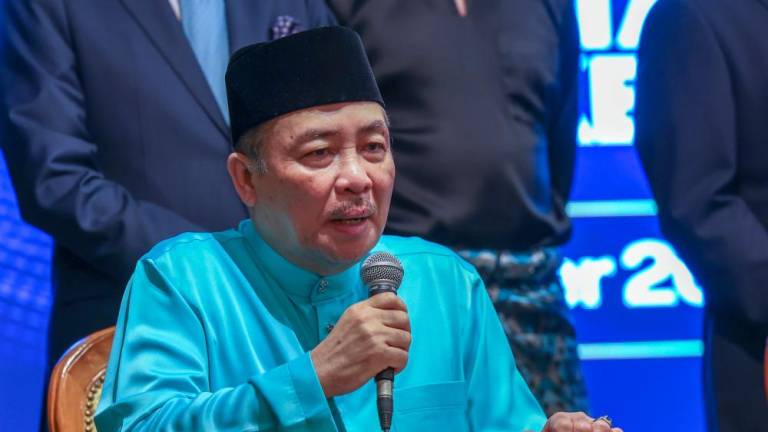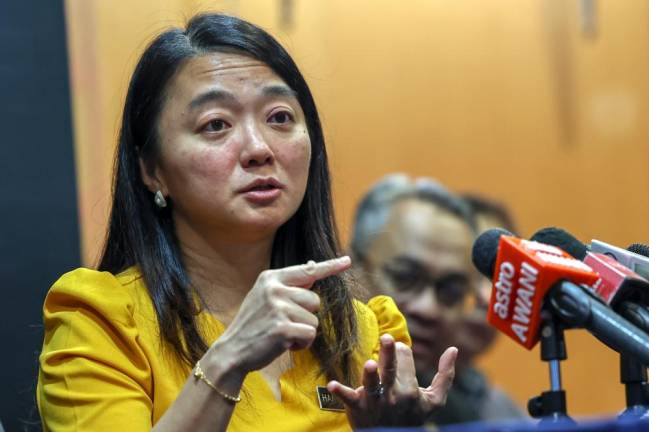ON July 16, the bill to amend the Federal Constitution to lower the voting age to 18 was passed by the Dewan Rakyat. Mainly pushed by the Ministry of Youth and Sports and supported by the august house, it was a bold move and a long awaited advocacy action by the civil society and youth. It was a step towards enfranchising youth aged 18 to be part of an important decision making process.
Today, youth are gaining access to information and knowledge that adults have underestimated. The enormous impact of modern communications, especially the internet, has empowered youth and kept them informed of crucial issues, be they foreign or domestic, national or local, urban or rural.
For some time, inclusion of youth and their potential was never part of the political equation and it took almost 10 years of electoral campaigning before our youth were allowed to vote. Youth are already part of the political process and at 18 they are treated as adults, where they assume responsibilities as citizens because they can drive a car, work full-time, join the army or police, and make decisions on which college to pursue their studies
We have to include our youth. The Brexit experience has taught us that a lot of young people who were unable to vote may be disillusioned with the political system and felt their voices were not heard.
We also have Joshua Wong who started his political activism at 14 and subsequently led a million protesters on the streets of Hong Kong. The youth of Hong Kong dominating the streets is a reflection of the need to listen and include them by the government.
I still remember after the Bersih 2.0’s first rally, I met at least 80 groups of youth from all over Malaysia, who were brimming with new activism and wanting to contribute, to have a say and to shape Malaysia. They certainly had many ideas.
The government talks about shared prosperity, which goes beyond just economic but to include strengthening well-being, inclusive development and having no-one left behind. Including the youth is the litmus test to define shared prosperity. We are dealing with about 1.5 million young people and this is on top of the existing backlog of voters who have not yet registered. The minister of youth and sports has suggested carrying out political education at schools, universities and colleges. This, he hopes, will help increase not just associating politics to political parties, but relate politics to making decisions on nation building. However, there are more challenges and they must be dealt with boldly and clearly.
The amendment to the Universities and University Colleges Act of 1971, Section 15, which allowed students to join political parties and campaign as candidates in elections as long as they were not engaging in political activities on campus, indeed empowered the political rights of the youth. Since then, two more amendments were made to effectively grant students the right to take part in political activities on campus. Secondly, disciplinary action against students for participation in on-campus political activities under the Acts was discontinued. By reducing the voting age to 18, it also means that candidates can also be as young as 18. This opens up a new political landscape for the country and its electorate and I must say it will be exciting to see Parliament filled with youth.
Challenges to the freedom of association and expression will determine the participation and representation of the youth. Since 2018, Liga Pemuda (Youth League), a human rights-based youth organisation and made up of young enthusiastic activists, has yet to be registered by the Registrar of Societies. As of March 2019, they were notified that the application is under review by the Special Branch. What has the Special Branch got to do with registration? Overall, the process of registration is more relaxed since the new government came in but the delay in registering Liga Permuda remains a thorn to freedom of association and expression.
Another thorny issue is the Perbadanan Tabung Pendidikan Tinggi Nasional (National Higher Education Fund Corporation). The fund owes RM40 billion in government guaranteed debt and many students are finding it increasingly hard to repay their loans. Reforms to introduce a new and fairer repayment scheme appear to have stalled.
Practically, before our youth can think about voting, their needs and interests have to be recognised and addressed.
These will involve being able to complete their studies with the least financial burden, having employment, and salaries that can support them and their future families.
A crucial factor is having a strong and youth sensitive education system. A lot more thinking needs to be put into our education system and key priorities set to improve the standard of education in schools and universities.
They must be given sufficient information, knowledge and skills to prepare for the new technological age or what some are calling Industrial Revolution 4.0. This will help our youth to be employed and be more prepared for new technology.
Other countries have gone ahead and we are not even there yet. If we look at China, Japan, South Korea and other developing countries turned Asian tigers, they have emphasised the importance of education.
These countries see education as important to the future development of their countries.
In my recent trips to China, I could not help but notice the efforts made by both government and corporations to encourage their youth to innovate. Corporates run competitions among the young to encourage them to innovate new technologies and to deal with challenges in various sectors.
Emphasis is also placed on introducing artificial intelligence as educational tools to interact with even kindergarten children. This is their new world and governments only act as facilitators.
In the mid-term review of the 11th Malaysia Plan, one strategic thrust was to accelerate human capital for an advanced nation.
The game changer was identified as industry-led technical and vocational education and training (TVET).
The idea is to produce skilled human capital that meets the demand from industry and supports the migration of activities in all economic sectors towards knowledge intensive activities. Well and good. This is where the combination of a strong foundation in education and support from skills-sensitive TVET must aim to help resolve issues of dropouts, unemployment, mismatch of skills with labour and underemployment.
I have talked to teenagers about voting at 18 and they are excited with the move. The government has to harness their enthusiasm and curiosity, and nurture their critical thinking skills.
According to the teenagers, the right to vote is a move in the right direction to build a more democratic society.
Let us not underestimate the political understanding of the youth and not treat them as just voters but as partners in nation building.
Comments: letters@thesundaily.com




